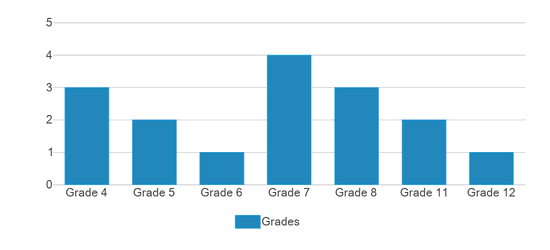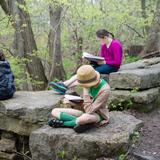Walbridge School educates children who struggle with specific learning disabilities such as dyslexia, dysgraphia, dyscalculia, and ADHD.
We provide small class sizes with a structured environment where children who need systematic, explicit instruction like Orton-Gillingham can succeed.
Walbridge School offers a full day elementary through high school program emphasizing flexible multi-sensory teaching to meet each student's learning needs.
Our specialized and personalized instruction is geared towards children with learning challenges such as dyslexia, dyscalculia, ADHD, or auditory processing disorders that get in the way of the student working towards their potential. Our program is not geared to work with children whose primary needs are emotional behavioral.
We provide a stimulating and challenging learning environment with high expectations for each student to take ownership of their learning.
School Overview
School Type
Religious Affiliation
Grades Offered
Grades 4-12
ADD/ADHD Support
Yes
Learning Difference Programs
Yes
Learning Programs Supported
Dyslexia, Dysgraphia, Dyscalculia, ADHD, & Anxiety
Year Founded
1986
Summer School Offered
Yes
Summer Program Details
Student Body
Total Students
15 students
Student Body Type
Co-ed
% Students of Color
20%
State avg.: 35%
Students by Grade

Academics and Faculty
Total Classroom Teachers
4 teachers
Student : Teacher Ratio
4:1
National avg.: 13:1
% Faculty w/Advanced Degree
25%
Average Class Size
6 students
List of Courses Offered
Classroom Dress Code
Casual
Tuition and Acceptance Rate
Admission Deadline
None / Rolling
Yearly Tuition Cost
$17,000
Tuition Notes
Walbridge School offers financial assistance to qualifying families after application process.
% on Financial Aid
15%
Average Financial Aid Grant
$2,500
Acceptance Rate
50%
National avg.: 85%
Admissions Director
Colleen Lourigan
School Notes
- 10:1 student to teacher ratio
- Structured systematic explicit instruction including Orton-Gillingham reading instruction
- Curriculum includes: Language Arts, Math, Science, Social Studies, Art, Music, Physical Education
- Technology Integrated: Each student is provided with a Chromebook for use throughout the school day.
- Financial scholarshipsavailable
Source: Verified school update
Frequently Asked Questions
How much does Walbridge School cost?
Walbridge School's tuition is approximately $17,000 for private students.
What is the acceptance rate of Walbridge School?
The acceptance rate of Walbridge School is 50%, which is lower than the national average of 93%.
Does Walbridge School offer a summer program?
Yes, Walbridge School offers a summer program. Visit their summer school page for more information.
When is the application deadline for Walbridge School?
The application deadline for Walbridge School is rolling (applications are reviewed as they are received year-round).
Recent Articles

Resources for Parents of Gifted Children
This article compiles a comprehensive list of resources for parents of gifted children, including organizations, books, websites, and testing information. It emphasizes the importance of understanding and nurturing gifted children's unique needs and abilities.

April 19, 2025
Pre-AP, PSAT/NMSQT, BlueBook, and MoreThis article explains the College Board's programs designed to prepare middle and high school students for the SAT. It covers Pre-AP courses, and the PSAT Suite of Assessments, highlighting how these programs use technology to enhance learning.

April 18, 2025
Independent Schools in AfricaDiscover Africa's vibrant international education landscape with our comprehensive guide to private K-12 schools across the continent. From British and American curricula to French, German, and niche language programs, explore how expat families can find world-class education tailored to their needs. Learn about boarding and day schools in South Africa, Tunisia, Morocco, Egypt, and beyond.
































